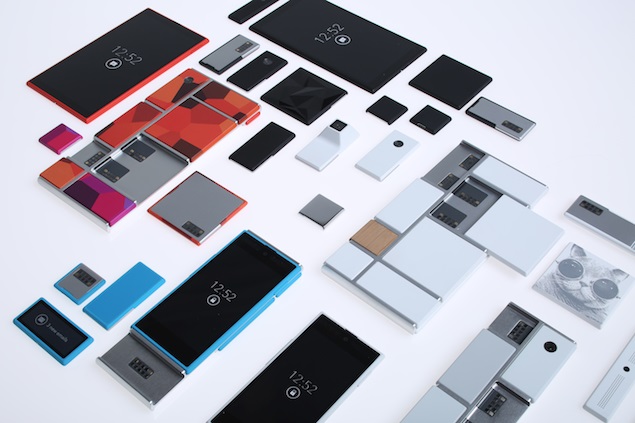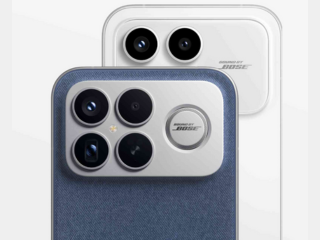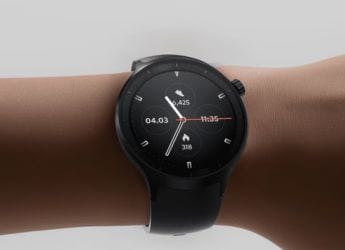- Home
- Mobiles
- Mobiles News
- Toshiba Partners Gujarat Based Firm to Develop Chips for Google's Project Ara Phones
Toshiba Partners Gujarat-Based Firm to Develop Chips for Google's Project Ara Phones

"Google is designing modular smartphones in which different modules can be assembled as one smartphone," said senior vice president and chief technology officer, Toshiba, USA, Shardul Kazi.
"Toshiba will make chips which can be used in modules and in the base plate, and will give idea on what kind of modules can be developed," Kazi said.
Those chips will be developed in partnership with Einfochips, the executive said, adding the Gujarat-based company will also verify the chips.
On 'Ara', Kazi said consumers can make their own smartphone as per their demands or can upgrade it with new features they like to set in the modular phone.
Kazi said the modular phone has a skeleton or a base-plate body, where consumer can set required hardware applications in the form of a magnetic ship module.
Two versions of phones have been already developed, which include Spiral-one and Spiral-two, Kazi said. Spiral-one and two have been made available for the module developers, while Spiral-3 will be made available for consumers.
(Also see: Google Unveils Spiral 2 Project Ara Prototype, Pilot Program in Puerto Rico)
Project Ara's Spiral-3 will be introduced on pilot basis in Caribbean island country Puerto Rico.
When asked about the price of the modular phones, Kazi said, "Price will be fixed by Google. However, different modules will be ranging from $50 to $5,000."
He said the cost can be cut to make it affordable for consumers.
Founder and CEO of Einfochips Pratul Shrof said the new product will open up innovation to the world, which will work as per requirements of different countries.
"The phones will be used as a platform on which one can do next generation design. Hardware application revolution will (be) combined with the software mobile apps in modular phones," said Shrof.
Shrof said the hardware applications will work just as software apps which are currently being used in smartphones.
This will work on android-based platform and modules have magnetic connection, which can be set into the slide-base of the phone, he said.
The company is likely to introduce 'startup' kit for the module developers in India in next few weeks, he said.
This will also give an opportunity to small companies and individuals to design and innovate new modules, added Shorf.
Catch the latest from the Consumer Electronics Show on Gadgets 360, at our CES 2026 hub.
Related Stories
- Samsung Galaxy Unpacked 2025
- ChatGPT
- Redmi Note 14 Pro+
- iPhone 16
- Apple Vision Pro
- Oneplus 12
- OnePlus Nord CE 3 Lite 5G
- iPhone 13
- Xiaomi 14 Pro
- Oppo Find N3
- Tecno Spark Go (2023)
- Realme V30
- Best Phones Under 25000
- Samsung Galaxy S24 Series
- Cryptocurrency
- iQoo 12
- Samsung Galaxy S24 Ultra
- Giottus
- Samsung Galaxy Z Flip 5
- Apple 'Scary Fast'
- Housefull 5
- GoPro Hero 12 Black Review
- Invincible Season 2
- JioGlass
- HD Ready TV
- Laptop Under 50000
- Smartwatch Under 10000
- Latest Mobile Phones
- Compare Phones
- Tecno Spark Go 3
- iQOO Z11 Turbo
- OPPO A6c
- Samsung Galaxy A07 5G
- Vivo Y500i
- OnePlus Turbo 6V
- OnePlus Turbo 6
- Itel Zeno 20 Max
- Lenovo Yoga Slim 7x (2025)
- Lenovo Yoga Slim 7a
- Lenovo Idea Tab Plus
- Realme Pad 3
- Garmin Quatix 8 Pro
- NoiseFit Pro 6R
- Haier H5E Series
- Acerpure Nitro Z Series 100-inch QLED TV
- Asus ROG Ally
- Nintendo Switch Lite
- Haier 1.6 Ton 5 Star Inverter Split AC (HSU19G-MZAID5BN-INV)
- Haier 1.6 Ton 5 Star Inverter Split AC (HSU19G-MZAIM5BN-INV)

















